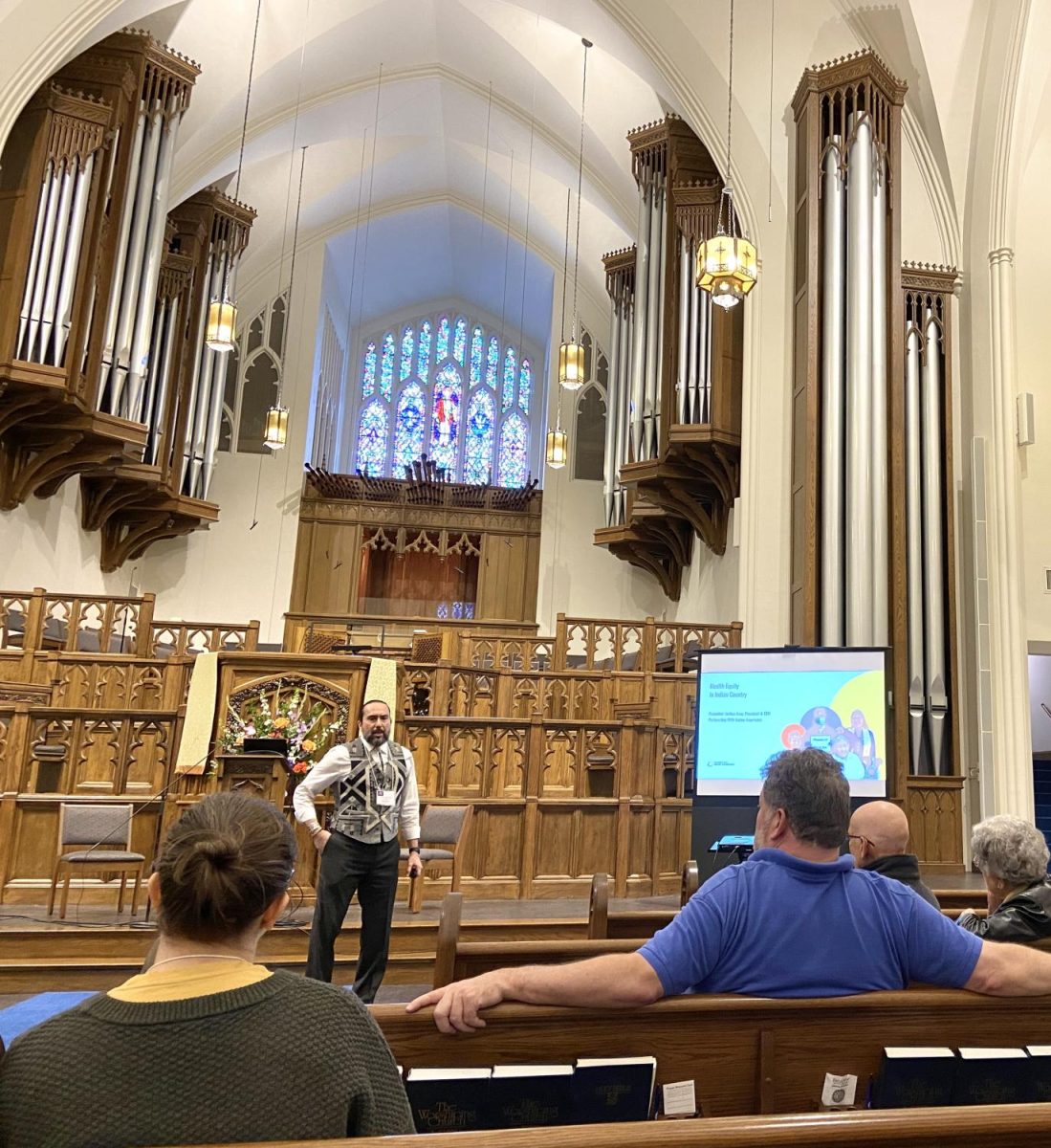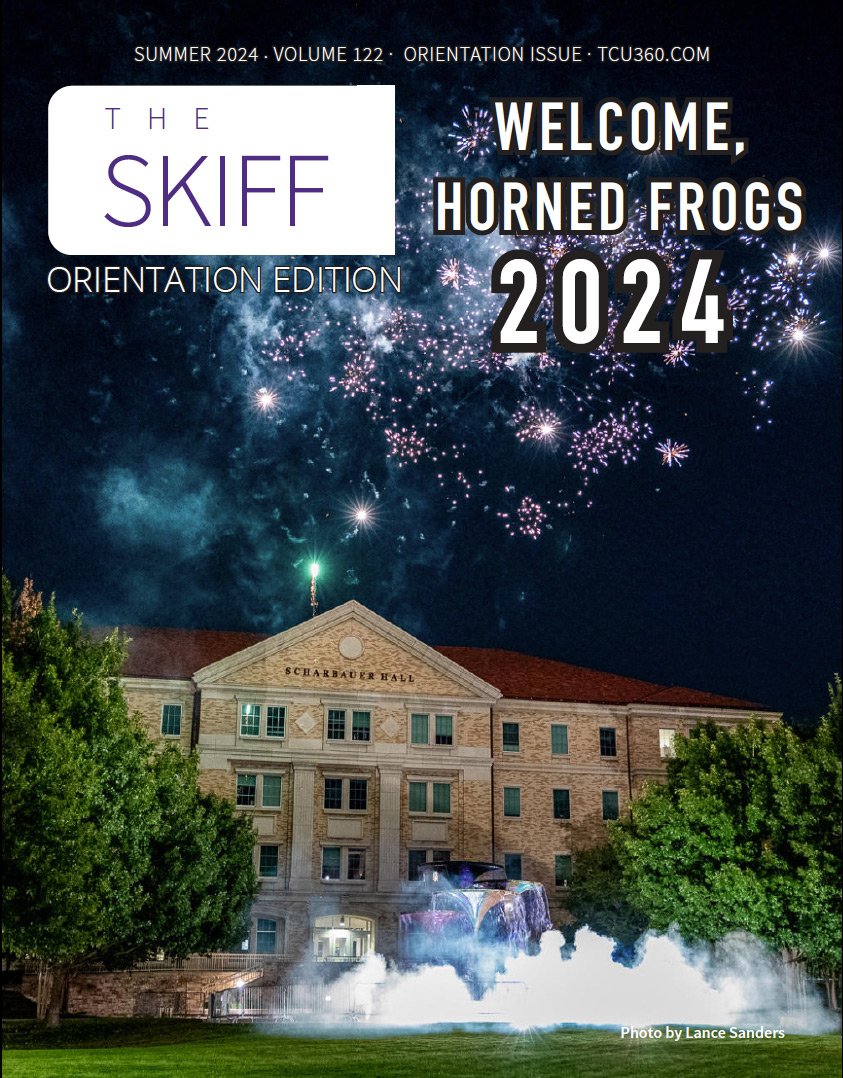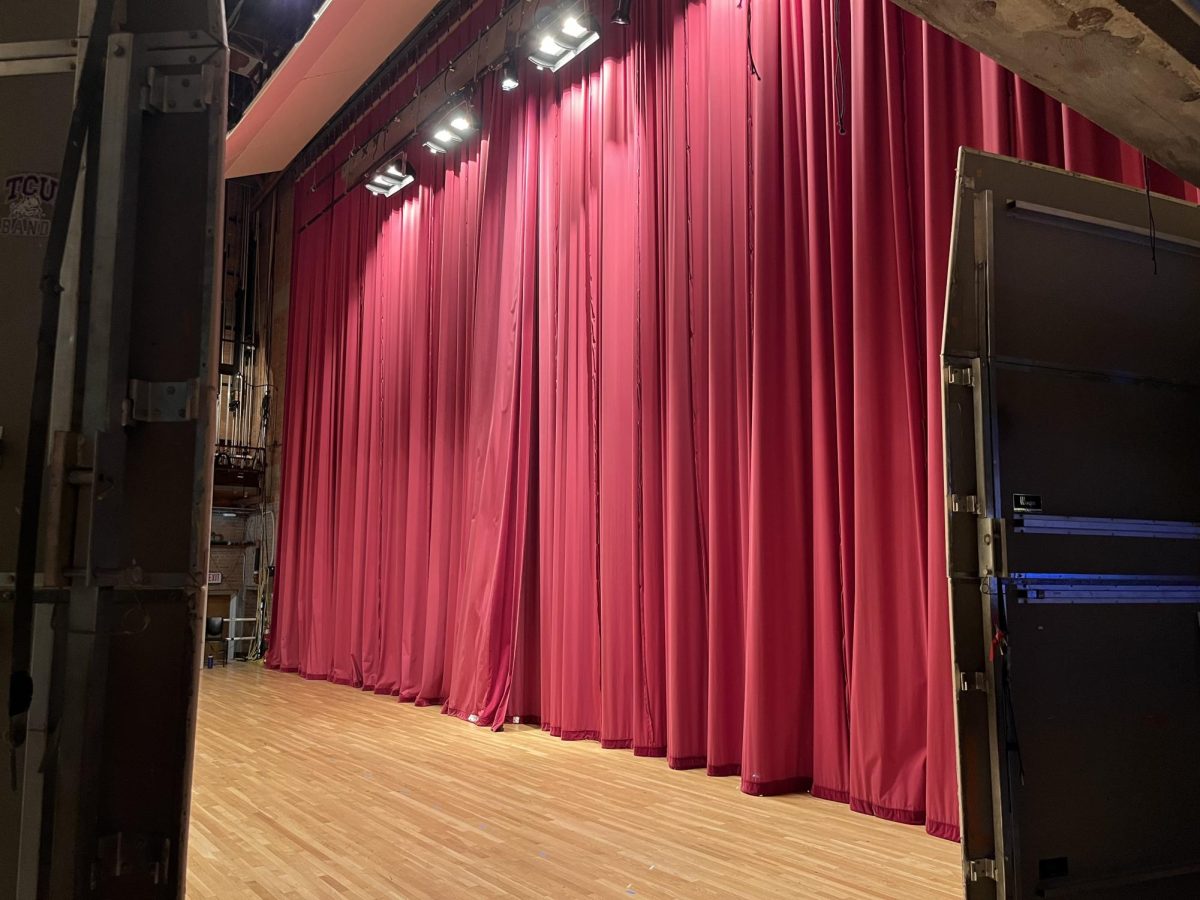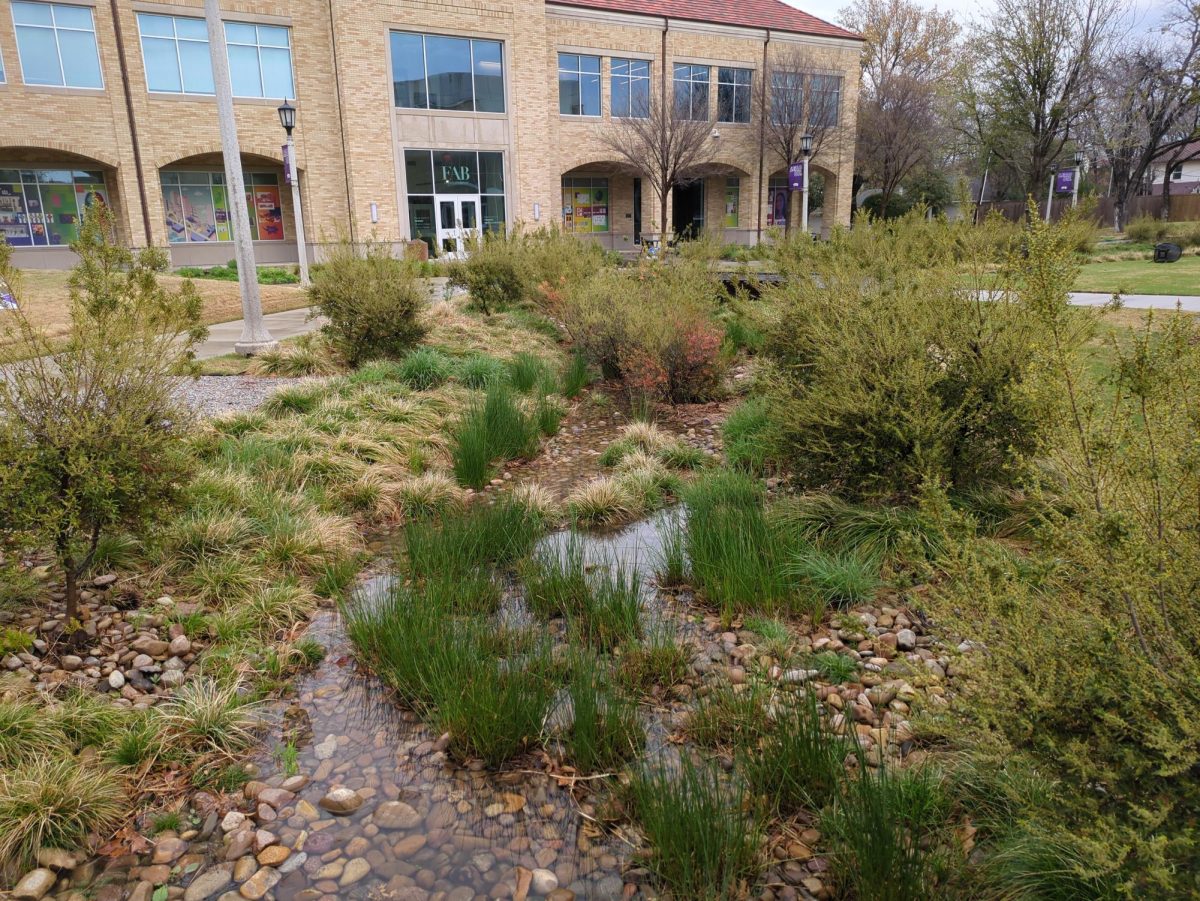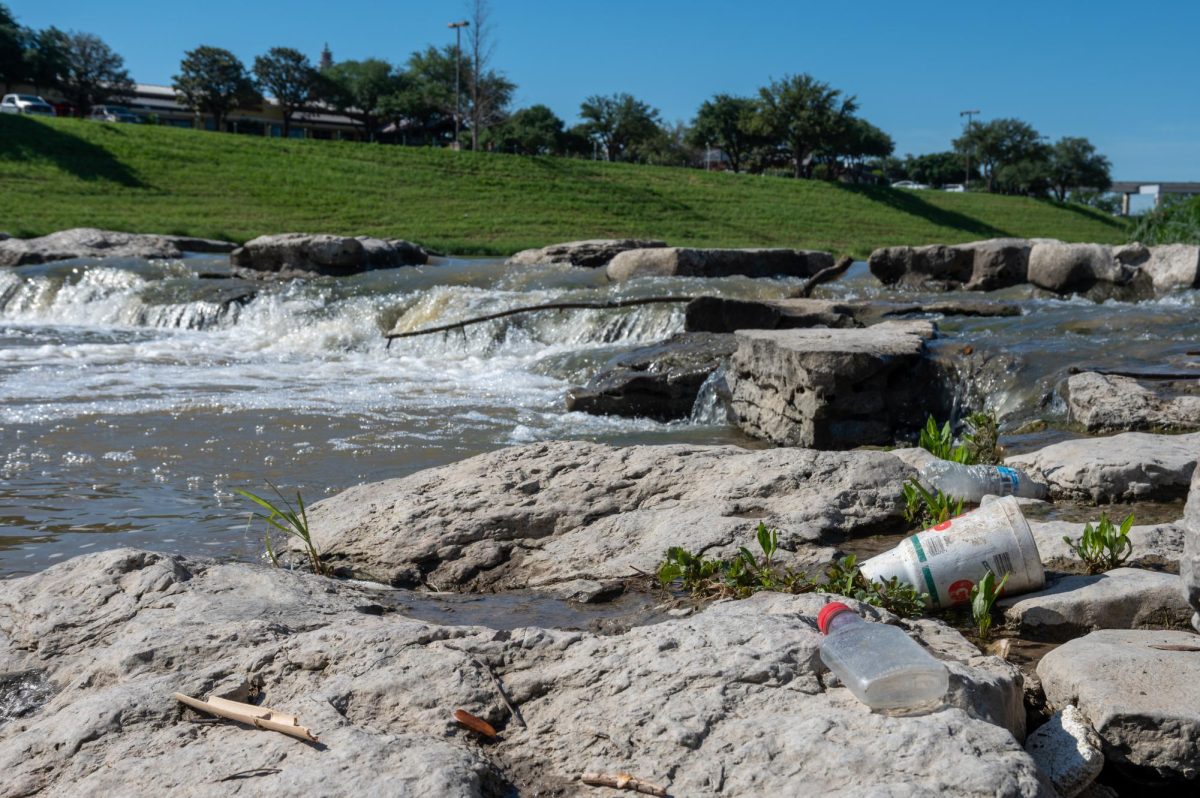Understanding the issues facing Native Americans and learning to navigate their communities were two of the workshop topics in this year’s ministry week.
Sponsored by the Brite Divinity School, TCU and the University Church, the annual February clergy conference has been renamed to reflect that it may address issues or bring in speakers who don’t fall neatly into the “minister” category.
Joshua Arce, a member of the Prairie Band Potawatomi Nation, led a workshop on health equity in the Indian country. He is the CEO of Partnership with Native Americans, one of the largest Native-led nonprofits in the country.
Arce works with organizations to help them become more “NativeAware,” and has a rich history of social work and education management in his home state of Kansas.
He spoke about the challenges Native Americans in Indian country face, concerning access to food and how this is being alleviated through the work he does.
“There are emerging programs, in a tribal sovereignty governance perspective, that directly impact food access so there isn’t a consistent dependency created on government food, commodity programs and those types of things,” Arce said.
The “largely rural, remote reservation communities” he works with push for self-determination since they “don’t have easy access to places like H-E-B, Kroger or Whole Foods.”
The nonprofit aims to “empower the community in order to have control over what they are putting in their bodies.”
Scott Langston, Ph.D., the liaison for Native American Nations and Communities at TCU, moderated the workshop. Langston spoke about the importance of including Native American perspectives in discussions so that students can be better prepared.
“TCU is pumping out lots of non-Native students who are going to be doctors, teachers and lawyers,” Langston said. “They need to know how to work with Native communities because every inch of the land they will walk on in the United States is Native territory.”
“There are 80,000 Native Americans between the Dallas Fort Worth area,” Arce said. “They are your neighbors, they work in police stations, in leadership. You can stand with people side by side and let them know there is that level of support from the community. That way, we don’t have you guys outside of our community, and you know that we are ingrained in the fabric of the community.”
In recent years, TCU has adopted a land acknowledgment, begun hosting an annual symposium and created an advisory circle.
“TCU is starting to make strides, we’re a lot better than we were in 2015,” Langston said. “TCU has done some significant things. One is the full scholarship for two Native students beginning in the 2024-2025 school year.”
Jacob Starr, the social media chair of the Native & Indigenous Student Association, said there are more events to come.
“More specifically, we are partnering with Tarrant County College to go to their American Indian Boarding School Stories Exhibit, we are having a beading workshop and we are supporting UTA by attending their 28th annual Pow Wow,” Starr said. “We would love to have students come out and learn more about our culture whether that be as members or allies of the club. We encourage students to go to TCU Engage to join our club and come to meetings.”
Students can find the Native & Indigenous Student Association on Instagram at @tcu.nisa.


